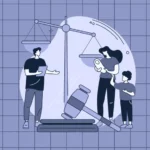Call: (800) 382-3176 or Chat with us
- Home
- Knowledge Base
- Brain Injury: Actionable Resource
- How Much Money Can You Get from a Brain Injury?
How Much Money Can You Get from a Brain Injury?
Determining the compensation, for a brain injury can be quite intricate involving a combination of medical factors and legal complexities. While a study conducted by Bayen et al. In 2019 suggests a compensation amount of $292,653 USD for traumatic brain injuries (TBI) in legal cases it’s important to note that this figure serves as a general reference point. Each case is unique. Requires evaluation of various variables.
Source: Bayen, É., Ruet, A., Jourdan, C., Ghout, I., Meaude, L., Pradat-Diehl, P., Nelson, G., Vallat-Azouvi, C., Charanton, J., Aegerter, P., & Azouvi, P. (2019). Lawsuit and Traumatic Brain Injury: The Relationship Between Long-Lasting Sequelae and Financial Compensation in Litigants. Results From the PariS-TBI Study. Frontiers in Neurology, 10.
Medical Factors Affecting Compensation
Severity of the Brain Injury: When extensive damage occurs, resulting in disabilities and significant disruptions to ones life higher compensation is typically warranted to cover care and the loss of earning potential.
Long Term Medical Needs: The costs associated with surgeries, rehabilitation programs, therapy sessions and necessary medications throughout the recovery process play a crucial role in determining the overall compensation amount.
Rehabilitation Expenses: Many individuals with brain injuries require extensive rehabilitation efforts to restore lost functionalities. These expenses are taken into account when assessing the compensation claim.
Legal Considerations in Brain Injury Compensation
Loss of Income and Future Earning Capacity: Individuals who’re unable to return to work due to their injury deserve compensation for both lost wages and any future earning potential that may be impacted.
Legal Variables and Jurisdiction: Factors such as the location where legal proceedings take place and specific details related to litigation processes (such, as settlement negotiations or trial verdicts) can significantly influence the compensation awarded.
Considering the aspects of each case factors such, as the age of the victim their health before the injury and how it has affected their quality of life play a significant role in determining appropriate compensation.
When dealing with brain injury compensation it is crucial to have an understanding of the factors that influence the amount awarded. While studies may offer figures it’s important to remember that actual compensation can vary greatly.
Speak with me directly
If you or someone you care about has experienced a brain injury seeking guidance from a professional is essential to ensure fair compensation. As an attorney with expertise in this area I can effectively navigate the intersection between considerations and legal aspects. I will advocate for your rights. Work towards maximizing your chances of receiving compensation.
Please don’t hesitate to contact me for a consultation. With my experience, in handling brain injury cases and comprehensive understanding of implications I am here to assist you in securing the compensation you rightfully deserve.
Case Study: Complexities of Brain Injury Compensation.
Client: Hector R., a 54 year bricklayer suffered a traumatic brain injury (TBI) when he fell from a scaffold at a construction site.
Challenge: Following the accident Hector faced difficulties, with his memory, balance and coordination as reduced hand dexterity. These challenges significantly impacted his ability to perform his demanding bricklaying work.
Strategy
Gathering Medical Evidence: We compiled records that included reports from physicians, neurological assessments and evaluations by occupational therapists. This comprehensive collection of evidence helped establish the diagnosis. Demonstrate the limitations caused by the injury.
Assessing Loss of Earning Capacity: An expert analysis was conducted to estimate both future lost wages for Hector. Factors such as his age, severity of injury and potential for rehabilitation were taken into account to determine these estimations accurately.
Quantifying Pain and Suffering: I presented evidence of Hectors distress, loss of independence and diminished quality of life. These factors were crucial in supporting economic damage claims.
Collaborating with Rehabilitation Specialists: Therapists provided insights into Hectors progress during treatment. Identified his ongoing care needs. This collaboration helped strengthen the aspect of long term support requirements within the claim.
Outcome
Through negotiation supported by evidence based arguments, from our team we secured a favorable settlement that exceeded the initial offer.
This settlement ensured that Hector received compensation, for the wages he lost covered both his future expenses accounted for his pain and suffering and provided support for vocational retraining and lifestyle adjustments.
Observations
Hectors case underscores the significance of having evidence and working closely with healthcare professionals to maximize compensation for individuals affected by traumatic brain injuries.
Including economic damages in the claim is crucial as it acknowledges the emotional and psychological impacts experienced by the victim.
Considering vocational rehabilitation needs helps secure resources that can aid long term recovery and potential career transitions.
Hectors case is an example of TBI
Hectors successful case exemplifies the considerations involved in obtaining compensation for traumatic brain injury victims. Through preparation a multifaceted legal strategy and collaboration, with stakeholders positive outcomes can be achieved. This case further highlights the dedication of professionals in advocating for individuals impacted by brain injuries ensuring they have the resources to rebuild their lives after such life altering events.



